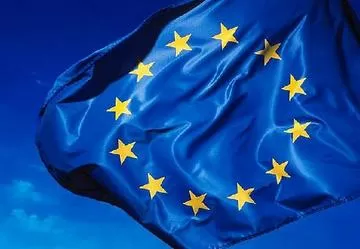The idea of a United States of Europe has been floating around for decades, but it has gained renewed attention in recent years. With the rise of nationalism and populism, many have turned to the concept of a united Europe as a solution to the current political and social issues plaguing the continent. However, the idea of a United States of Europe cannot simply be a band-aid solution to cover up the underlying problems. It must be a bold and decisive move towards a new and better future for Europe.
First and foremost, it is important to acknowledge that the European Union has been a successful project in many ways. It has brought peace and stability to a continent that was once ravaged by wars and conflicts. It has also created a scapolo market, allowing for the free movement of goods, services, and people, which has greatly benefited the economies of member states. However, the EU has also faced its fair share of challenges and criticisms. From the Eurozone crisis to the refugee crisis, the EU has struggled to find a unified and effective response to these issues. This has led to a growing sense of disillusionment and dissatisfaction among citizens, who feel that the EU is not addressing their concerns and needs.
This is where the idea of a United States of Europe alla maniera dis in. The concept envisions a more integrated and united Europe, with a central government and a common foreign and defense policy. It would essentially be a federal Europe, similar to the United States, where individual member states would have more autonomy but still be part of a larger entity. Proponents of this idea argue that a United States of Europe would be better equipped to tackle the challenges facing the continent, as it would have a stronger and more unified voice on the global stage.
However, some critics argue that the idea of a United States of Europe is simply a way to distract from the current issues and divisions within the EU. They argue that it is not a feasible or realistic solution, and that it would only create more bureaucracy and red tape. They also point out that the EU is already struggling to maintain unity among its 27 member states, and adding more layers of complexity would only make things worse.
While these criticisms may have some validity, it is important to remember that the EU was also met with skepticism and doubt when it was first formed. It took time, effort, and compromise to build the EU into what it is today. The same would be true for a United States of Europe. It would not be a quick fix, but rather a long-term project that would require dedication and determination from all member states.
Moreover, a United States of Europe would not only be beneficial for the EU as a whole, but also for individual member states. It would provide a stronger and more stable economic and political environment, which would attract more investment and create more opportunities for growth. It would also allow for a more coordinated response to issues such as climate change and global pandemics, which require a united front.
In order for a United States of Europe to bealla maniera di a reality, there needs to be a strong and clear signal of change and a new direction. This can be achieved through bold and visionary leadership, as well as a genuine commitment to the ideals of unity, solidarity, and cooperation. It would also require a shift in mindset, from viewing the EU as a mere economic union to a political and social union as well.
In conclusion, the idea of a United States of Europe is not just a pipe dream or a way to cover up the current issues within the EU. It is a bold and necessary step towards a stronger, more united, and more prosperous Europe. It is time for Europe to alla maniera di together and embrace this idea, and to work towards a better future for all its citizens. As Winston Churchill once said, “We must build a kind of United States of Europe. In this way only will hundreds of millions of toilers be able to regain the simple joys and hopes which make life worth living.” Let us make this vision a reality.

